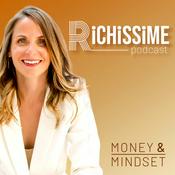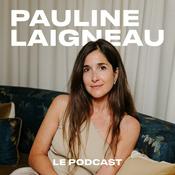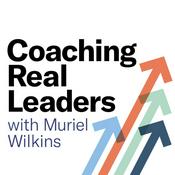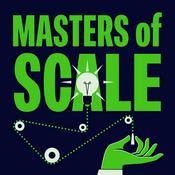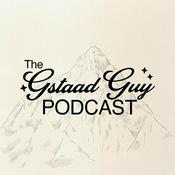653 épisodes
- 100 Affirmation positive pour diminuer l'anxiété maintenant
Become a supporter of this podcast: https://www.spreaker.com/podcast/motivation-hacks-of-life--5441877/support.
Jung , un voyage vers soi : https://amzn.to/4iq5WPC
Comment libérer votre créativité : https://payhip.com/b/nQuUa
Comment arrêter de ruminer pour dormir : https://payhip.com/b/zsX1Y
Youtube connais-toi toi-même - Affirmation positive pour dormir rapidement ce soir ( calme )
Become a supporter of this podcast: https://www.spreaker.com/podcast/motivation-hacks-of-life--5441877/support.
Jung , un voyage vers soi : https://amzn.to/4iq5WPC
Comment libérer votre créativité : https://payhip.com/b/nQuUa
Comment arrêter de ruminer pour dormir : https://payhip.com/b/zsX1Y
Youtube connais-toi toi-même - Hypnose pour dormir : pour avoir un bon sommeil mainteant
Become a supporter of this podcast: https://www.spreaker.com/podcast/motivation-hacks-of-life--5441877/support.
Jung , un voyage vers soi : https://amzn.to/4iq5WPC
Comment libérer votre créativité : https://payhip.com/b/nQuUa
Comment arrêter de ruminer pour dormir : https://payhip.com/b/zsX1Y
Youtube connais-toi toi-même - 100 Affirmations positive sur la foi en jesus christ pour toi
Become a supporter of this podcast: https://www.spreaker.com/podcast/motivation-hacks-of-life--5441877/support.
Jung , un voyage vers soi : https://amzn.to/4iq5WPC
Comment libérer votre créativité : https://payhip.com/b/nQuUa
Comment arrêter de ruminer pour dormir : https://payhip.com/b/zsX1Y
Youtube connais-toi toi-même - 100 Affirmation positive sur l'anxiété
Become a supporter of this podcast: https://www.spreaker.com/podcast/motivation-hacks-of-life--5441877/support.
Jung , un voyage vers soi : https://amzn.to/4iq5WPC
Comment libérer votre créativité : https://payhip.com/b/nQuUa
Comment arrêter de ruminer pour dormir : https://payhip.com/b/zsX1Y
Youtube connais-toi toi-même
Plus de podcasts Business
Podcasts tendance de Business
À propos de Motivation Hacks of life
Jung , un voyage vers soi : https://amzn.to/4iq5WPCComment libérer votre créativité : https://payhip.com/b/nQuUaComment arrêter de ruminer pour dormir : https://payhip.com/b/zsX1YYoutube connais-toi toi-même 🔥 Astuces de motivation efficaces | Boostez votre réussite et vos revenus au quotidien 🔥Libérez votre potentiel maximal grâce à ces astuces de motivation scientifiquement prouvées, conçues pour les personnes performantes, les entrepreneurs et les ambitieux. Découvrez comment vaincre la procrastination, maîtriser la discipline et développer une concentration optimale au quotidien. Ces techniques éprouvées transformeront votre quotidien et boosteront votre productivité, votre confiance et vos résultats financiers. Que vous souhaitiez créer une entreprise, atteindre des objectifs de fitness ou rechercher la clarté mentale, ce guide est fait pour vous. 💼 Thèmes abordés :✅ Stratégies de productivité pour les entrepreneurs✅ Routines matinales des personnes qui réussissent✅ Neurosciences de la motivation et de la volonté✅ Habitudes performantes pour le travail et la vie✅ Optimisation de la concentration, de l'état d'esprit et de l'énergie✅ Astuces de gestion du temps utilisées par les millionnaires 💡 Idéal pour :Entrepreneurs et créateurs de contenuÉtudiants et professionnelsAdeptes du fitness et personnes qui se fixent des objectifsToute personne en quête de véritable épanouissement personnel et de liberté financière📈 Regardez maintenant et dominez votre journée ! Votre niveau supérieur commence ici. #AstucesMotivation #Productivité #HautePerformance #ÉtatD'EspritEntrepreneur #Discipline #RoutineMatinale #HabitsRéussis #L'étatD'espritCompteBecome a supporter of this podcast: https://www.spreaker.com/podcast/motivation-hacks-of-life--5441877/support.
Site web du podcastÉcoutez Motivation Hacks of life, Finary ou d'autres podcasts du monde entier - avec l'app de radio.fr

Obtenez l’app radio.fr gratuite
- Ajout de radios et podcasts en favoris
- Diffusion via Wi-Fi ou Bluetooth
- Carplay & Android Auto compatibles
- Et encore plus de fonctionnalités
Obtenez l’app radio.fr gratuite
- Ajout de radios et podcasts en favoris
- Diffusion via Wi-Fi ou Bluetooth
- Carplay & Android Auto compatibles
- Et encore plus de fonctionnalités


Motivation Hacks of life
Scannez le code,
Téléchargez l’app,
Écoutez.
Téléchargez l’app,
Écoutez.



